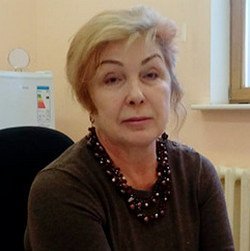Pros and cons of GMOs in seeds for Tatarstan agricultural producers
What is the point for Rosselkhoznadzor to put a barrier to genetically modified seed material?
'Harmful' genes were found in three of the 608 samples of seed material received in the Republic of Tatarstan in 2020 by specialists of the testing laboratory of the Federal State Budgetary Institution Rosselkhoznadzor. On the eve of the sowing campaign, Realnoe Vremya talks about GMO content control in seeds and animal feed, and about the real and perceived threats posed by genetically modified foods.
“We define all GMO lines”
As Realnoe Vremya was reported in the branch of the Federal State Budgetary Institution Rosselkhoznadzor in the Republic of Tatarstan, the institution has been providing services to agricultural producers since 2017 to identify GMOs in seeds, animal feed and other crop products, including conducting research under state orders.
“Our test system determines 90 percent of all GMO lines," says the head of the testing laboratory, Lilia Khabibullina. “We carry out the simultaneous identification of all existing GMO markers in the world and their identification.”
According to her, in 2021, the branch's laboratory conducted more than 30 tests of plant products for the content of GMOs. And in 2020, the laboratory of the branch of Rosselkhoznadzor Federal State Budgetary Institution in the Republic of Tatarstan conducted a study of 626 samples of crop products, including 300 — as part of the implementation of the state order. First of all, the crops that are most often subjected to gene modification in the world practice were examined: corn, rapeseed, soy, sugar beet. Studies have shown the presence of the genetically modified GT73 gene in three rapeseed samples.
“It's up to you”
But why looking for traces of GMOs in the seeds, if we already often use food products obtained with the use of genetic engineering and are well aware that only with their help in the near future it will be possible to feed the growing population of the Earth?
The Russian Agricultural Centre reported that the law 'On Seed Production' prohibits the cultivation of agricultural crops using genetically modified seed material, but from April 16, 2020, the free import of genetically modified soybeans and animal feed to Russia is allowed (previously obtained with the use of GMO products were allowed to be imported only if they passed the state registration procedure).
The agency also clarified that “now in Russia the volume of purchases of imported seeds is 40-80%, and in some cases, such as with sugar beet — 98% of the country's needs”. They stressed that the decision to use or not to use genetically modified feed in agricultural production is “the issue that the agricultural producer must resolve for themselves, assessing all the risks: environmental, social and economic”.
They also noted that in the public domain, describing the results of various studies, there is such information: “In the United States and the European Union, after allowing the cultivation of GMO soybean, DNA which is integrated with resistance gene, an increase in the concentration of herbicides in grain 130 times has been revealed — this means that when buying, for example, sausage, soy filler, the person will receive a shoking dose of chemicals”.
When asked what connection the “built-in” genes may have with the concentration of herbicides, the Rosselkhoznadzor replied that it was the most direct. It turns out that when a genetically modified plant receives a gene for resistance to herbicides, the fields can be much harder to “clean” from weeds, because the crops no longer suffer even with the strongest chemical treatment. And herbicides, destroying harmful plants, “settle” in the cultivated crop.
“This is absolute nonsense”

This was done, according to her, on purpose — so that artificially bred plants that are resistant to diseases, pests, and weather conditions do not displace the usual, less resistant ones:
“It is possible to make it so that to get the same seeds from GMO seeds, but geneticists do not do this to preserve the diversity of species in nature.”
Eco-friendly technologies of the future
“In terms of yield and strength, good genetic modifications of GMOs are first-class things!” Olga Ilyinskaya believes. “I was trained in three schools that were held on the topic of GMOs — in Italy, the United States and Russia, and I studied the issue in depth, so I claim this with full justification.
She explained the principle of operation of GMOs on the example of wheat, which received the cold resistance gene from northern salmon — it provided a high yield of crops, as they say, in any weather.
These technologies, she is convinced, are the future, because they are the most environmentally friendly. The fields sown with GMO seeds do not require chemical “bombardment” — they are resistant to diseases, insects, rodents, and so on.
Fighting not for security, but for profit?
However, this, according to Olga Ilyinskaya, is precisely what causes the resistance of the largest producers of agricultural chemicals, which is expressed in the spread of horror stories about GMOs. After all, their products will not be bought by those who buy for their fields the seed material obtained on the basis of genetic engineering — the fields sown with GMO seeds do not require chemical processing:
“There is an economic struggle going, producers of agricultural chemicals do not want to lose profits.”